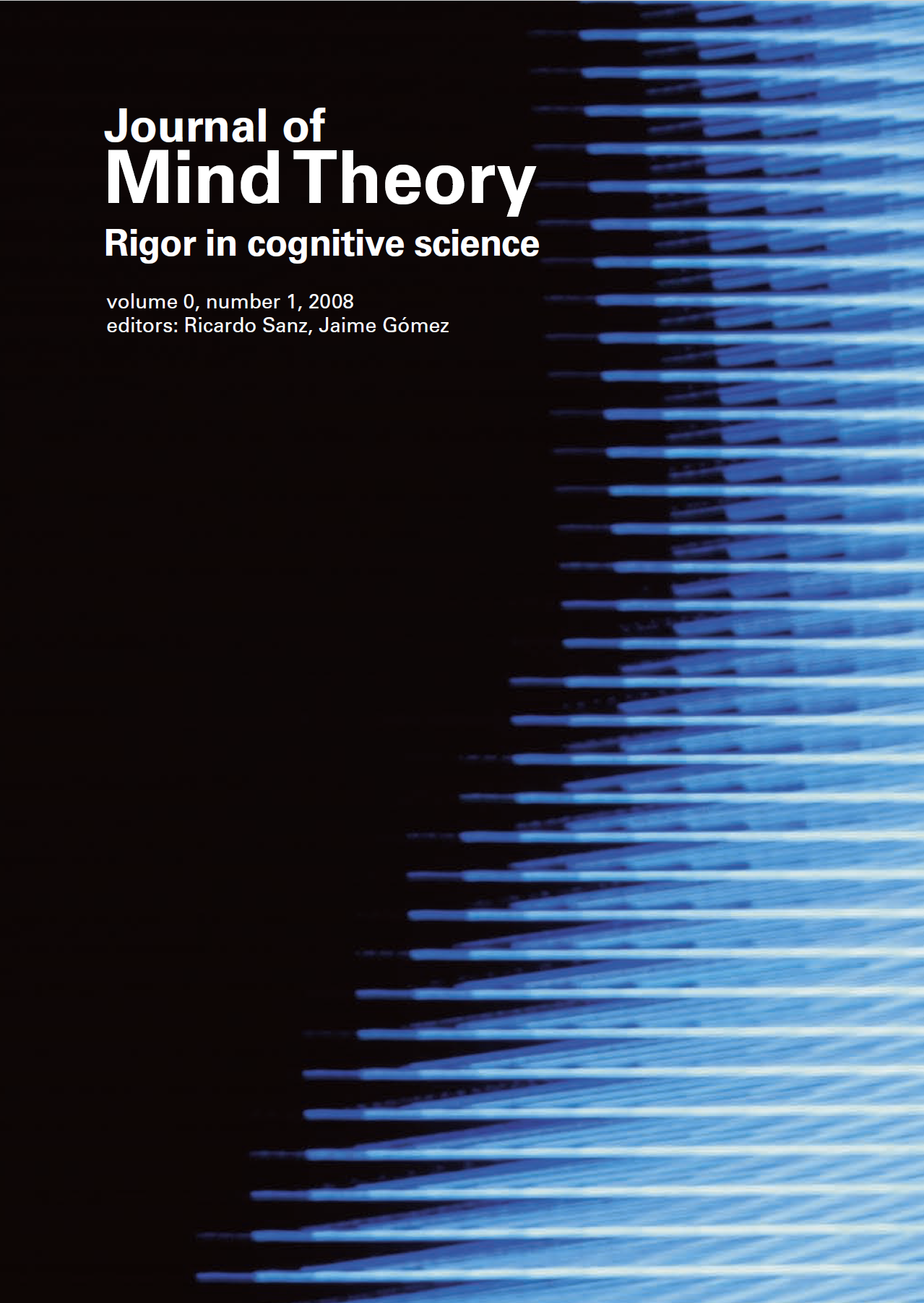Journal of Mind Theory
Mind and Brain, Artificial Intelligence and Robotics
In the recent and not so recent past, several formal and abstract models have attempted to shed light on the coret topics of Mind and Brain, Robotics and Artificial Intelligence. This has created a vast proliferation of published information, which is currently lacking any one dominant model for understanding the mental processes.
The aim of the Journal of Mind Theory JMT is to consolidate and explore formal and abstract tools for modeling cognitive phenomena. It seeks to create a cohesive and concrete formal approach towards understanding the continuum between the mind and brain, striving for precision and clarity. Additionally, it aims to examine the implications for AI and related disciplines.
For a dialogue between the funding editors of The Journal of Mind Theory on these issues see Questions on Mind Theory
Rigor in Cognitive Science
The focus of the journal was on theories and or hypotheses on the nature of the mind. The journal was edited by Professors Ricardo Sanz and Jaime Gómez-Ramírez, and the editorial board included reknown experts in the fields of AI, neuroscience, cognitive science and machine consciousness and others,
The journal aims to capture the ongoing developments in the formal science of mind, striving towards the ultimate goal of a unified formal theory of mind. It remains open to any relevant proposals, irrespective of specific language, background, or domain.
The first two numbers of the JMT were published in paper and online thanks to a grant from the Spaninsh Government. They included papers from James Albus, Ron Cottan, Pentti Haikonen, Konrad Talmont-Kaminski, Andrée C. Ehresmann, Tariq Samad, Lorenzo Magnani and others.
Unfortunately, due to the personnel and personal circumstances, the journal didn’t have any further history but we don’t consider it dead, but sleeping in wait a of a better opportunity.
The two first numbers can be downloaded here:
Editorial Board
| Name | Affiliation | Country |
|---|---|---|
| Albus, James | George Mason University, USA | USA |
| Aleksander, Igor | Imperial College London, UK | UK |
| Anderson, Michael L. | Franklin & Marshall College, USA | USA |
| Baars, Bernard | Neurosciences Institute at La Jolla, USA | USA |
| Baas, Nils | Norwegian University of Science and Technology, Norway | Norway |
| Bedia, Manuel | University of Zaragoza, Spain | Spain |
| Bryson, Joanna | University of Bath, UK | UK |
| Castelfranchi, Cristiano | Institute of Cognitive Sciences and Technologies, Italy | Italy |
| Chella, Antonio | University of Palermo, Italy | Italy |
| Chrisley, Ron | University of Sussex, UK | UK |
| Cottam, Ron | Vrije Universiteit Brussel, Belgium | Belgium |
| Ehresmann, Andrée | Université de Picardie Jules Verne, France | France |
| Eliasmith, Chris | Waterloo University, Canada | Canada |
| Franklin, Stan | University of Memphis, USA | USA |
| Freeman, Walter | University of California, Berkeley, USA | USA |
| Gardenfors, Peter | University of Lund, Sweden | Sweden |
| Gomila, Toni | Universiy of Balearic Islands, Spain | Spain |
| Gudwin, Ricardo | University of Campinas, Brazil | Brazil |
| Haikonen, Pentti | University of Illinois, USA | USA |
| Heylighen, Francis | University of Brussels, Belgium | Belgium |
| Longo, Giuseppe | Ecole Normale Supérieure, France | France |
| López Paniagua, Ignacio | Universidad Politécnica de Madrid, Spain | Spain |
| Mahner, Martin | Gesellschaft zur wissenschaftlichen Untersuchung von Parawissenschaften e.V., Germany | Germany |
| Magnani, Lorenzo | University of Pavia, Italy | Italy |
| Perlovsky, Leonid | United States Air Force Research Laboratory, USA | USA |
| Samad, Tariq | Honeywell, USA | USA |
| Scheutz, Mathias | Indiana University, USA | USA |
| Sloman, Aaron | Birmingham University, UK | UK |
| Talmont-Kaminski, Konrad | Marie Curie-Sklodowska University in Lublin, Poland | Poland |
| Taylor, John | King’s College London, UK | UK |
| Wiener, Sidney | College de France, France | France |
Further Information
For further information about The Journal of Mind Theory, please contact the Editors Ricardo Sanz and Jaime Gomez-Ramirez.
